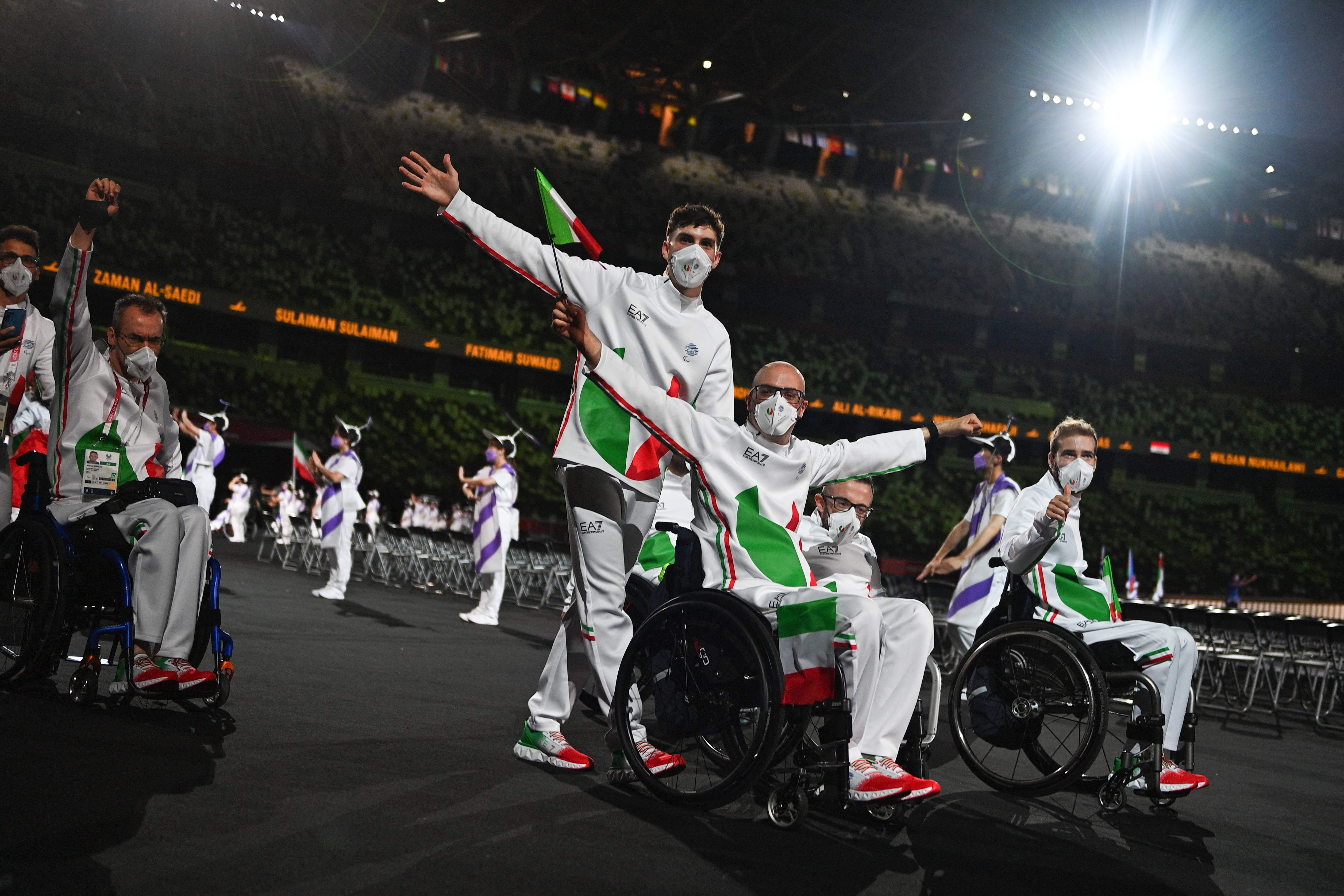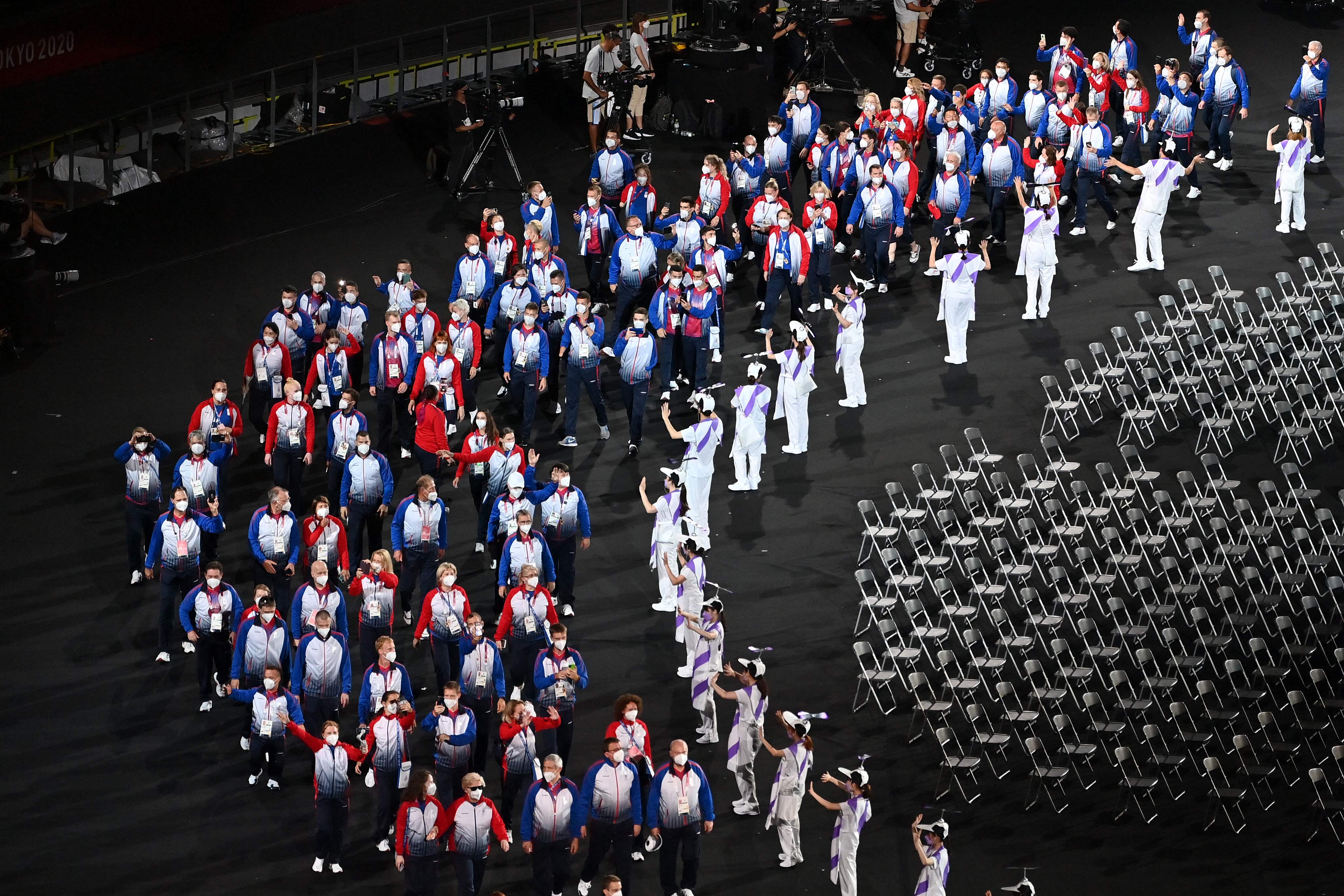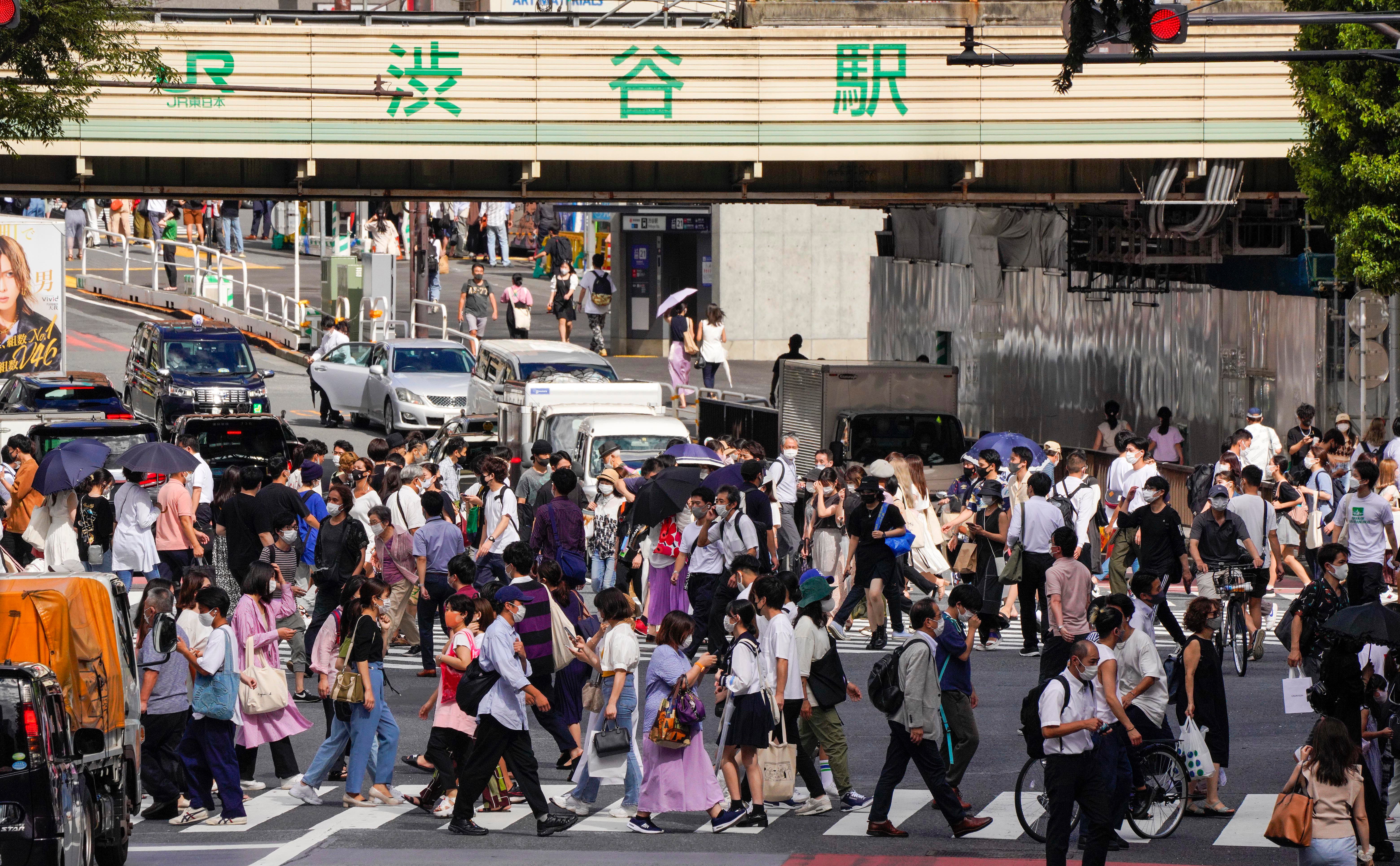Paralympics opens with no spectators as spiralling Covid crisis overwhelms medical system in Japan
The 16th Paralympics will take place with a record of 4,403 athletes from 161 countries and regions

Your support helps us to tell the story
From reproductive rights to climate change to Big Tech, The Independent is on the ground when the story is developing. Whether it's investigating the financials of Elon Musk's pro-Trump PAC or producing our latest documentary, 'The A Word', which shines a light on the American women fighting for reproductive rights, we know how important it is to parse out the facts from the messaging.
At such a critical moment in US history, we need reporters on the ground. Your donation allows us to keep sending journalists to speak to both sides of the story.
The Independent is trusted by Americans across the entire political spectrum. And unlike many other quality news outlets, we choose not to lock Americans out of our reporting and analysis with paywalls. We believe quality journalism should be available to everyone, paid for by those who can afford it.
Your support makes all the difference.Japan is set to open the Paralympic Games on Tuesday night with thousands of athletes attending, days after the country saw its worst spike in daily Covid-19 infections during the Olympics.
The 16th Summer Paralympics, which were delayed by a year due to the pandemic, will take place with a record of 4,403 athletes from 161 countries and regions amid swirling concerns over the safety of athletes with disabilities.
The fears are compounded by the possibility of higher risk of coronavirus infection to these athletes due to their possible underlying health conditions.
The organisers of the games acknowledged last week that the Paralympics will be held under "very difficult" circumstances as hospitals remained overstretched in Japan with serious cases following the surge driven by Delta variant.
"Looking at the medical situation, we cannot help but say we will hold the Paralympics in the middle of a very difficult situation," Tokyo 2020 Games delivery officer Hidemasa Nakamura told a news conference.
"What do we do if we have a case becoming seriously ill, given the tight situation on hospital beds? We need to have a contact flow in line and include the hospitals and medical facilities in that contact flow."
The games would be held without spectators, same as the Olympic games, with the exception of some children attending through school programmes.

International Paralympic Committee president Andrew Parsons said the committee is convinced that games could be held safely as the majority of athletes are vaccinated.
"If everyone follows the playbook, together with the testing plan, together with the fact that 88% to 90% of the athletes and team officials will come to Tokyo vaccinated, we are convinced that we can deliver a safe Games," he said.
Tokyo governor Yuriko Koike said on Tuesday that the host city will work hard toward ensuring "wonderful games" that are also "safe and secure."
"Paralympians have gathered from all over the world in Tokyo despite the pandemic by overcoming a number of difficulties. I would like to pay my respects to their efforts from the bottom of my heart," she said.
But despite the assurance, Tokyo’s infection rate has been surging, with over 5,000 new daily infections since the Olympics that happened between 23 July and 8 August. The single-day surge is almost three times higher before the main Olympic event.
On Monday, the Yoshihide Suga-run government and the Tokyo Metropolitan government appealed to hospitals in the capital to secure beds and start accepting more Covid patients in first such request.

The recent surge in the country has stretched the city’s medical system and the government is now trying to add 600 hospital beds to raise the total capacity to 7,000 beds available for patients, reported Kyodo News.
Tokyo again recorded one of the highest single day surge on Sunday with 4,392 new coronavirus cases even as the overall national tally dropped to 22,285 for the first time in four days.
The number of Covid patients with severe symptoms continued to rise for the 10th straight day, making up for 1,891 such cases across the country.
On 17 August, the government extended the state of emergency in Tokyo and other regions through 12 September.
Mr Suga said: "The Delta variant raging across the world is causing unprecedented cases in our country.”
"Serious cases are increasing rapidly and severely burdening the medical system, particularly in the capital region,” he added.
The government is also planning to expand the state of emergency again due to rising infections, reported Kyodo agency citing sources in the ruling party on Tuesday.
The decision might come after several prefectures demanded restrictions to hold the games safely.
Join our commenting forum
Join thought-provoking conversations, follow other Independent readers and see their replies
Comments